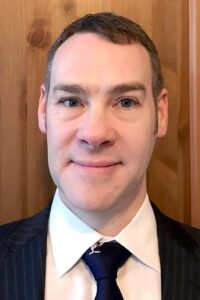AACR Project GENIE registry surpasses ‘greatest expectations’
AACR Project GENIE (Genomics Evidence Neoplasia Information Exchange), a publicly accessible international cancer registry of real-world data assembled through data sharing between 19 of the leading cancer centers in the world, has surpassed its organizers’ greatest expectations, according to Shawn M. Sweeney, PhD, Senior Director of the AACR Project GENIE Coordinating Center. The registry currently contains 143,000-plus sequenced tumors.

“We’re about a year and a half ahead in terms of where we thought we would hit the 100,000 mark,” Sweeney said. “We started with eight institutions and subsequently expanded, which ultimately helped us get to that number a little bit faster.”
Through the efforts of strategic partners Sage Bionetworks and cBioPortal, the registry aggregates, harmonizes, and links clinical-grade, next-generation cancer genomic sequencing data with clinical outcomes obtained during routine medical practice from nearly every cancer patient treated at the 19 participating institutions.
“We release the data publicly every six months because our entire reason for existing is to make sure it’s available to the community so that as many people as possible can use the data,” Sweeney said.
Annual Meeting attendees will have several opportunities to learn how to utilize the registry in their own work and to see how others have benefited from it.
A special session, Decoding Cancer Complexity and Transforming Patient Outcomes Using AACR Project GENIE, will examine the use of genetic ancestry to redefine the role of race and ethnicity in patient prognosis and outcomes. Rob Scharpf, PhD, The Sidney Kimmel Comprehensive Cancer Center, Johns Hopkins University School of Medicine, will discuss how Amgen used Project GENIE to decode KRAS mutations as it sought and received accelerated approval from the U.S. Food and Drug Administration for its drug LUMAKRAS (sotorasib). And the BPC NSCLC 2.0 public dataset, a new open-access tool for decoding the complexity of lung cancer, will be debuted during the one-hour session, which will begin at 1 p.m. CDT on Sunday, April 10.
A methods workshop session, Using Real-world Clinico-genomic Data: AACR Project GENIE as a Use Case, will review the nuts and bolts of using data from the project and combining it with other data sources. The session will be held from 12:30 – 2 p.m. CDT on Saturday, April 9.
Another program highlight is a third-annual minisymposium that will feature researchers from around the world presenting abstracts based on Project GENIE data. The session will be held from 2:30 – 4:15 p.m. CDT on Monday, April 11.
“We’ve got data users from Northern Europe to Puerto Rico and Japan, so we’re seeing more use of the data in new places and that’s very heartening,” Sweeney said. “We also saw a nice increase in the number of submissions this year. This is our third time running the session, and each year we’ve seen it grow significantly.”
Sweeney said there will also be at least two poster sessions, each featuring more than a dozen presentations by researchers who have used data from AACR Project GENIE.
[sub-post-content]
